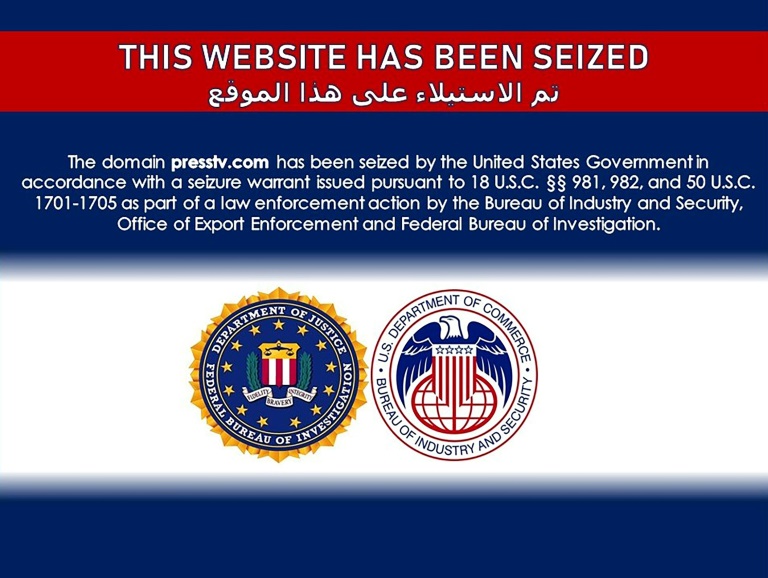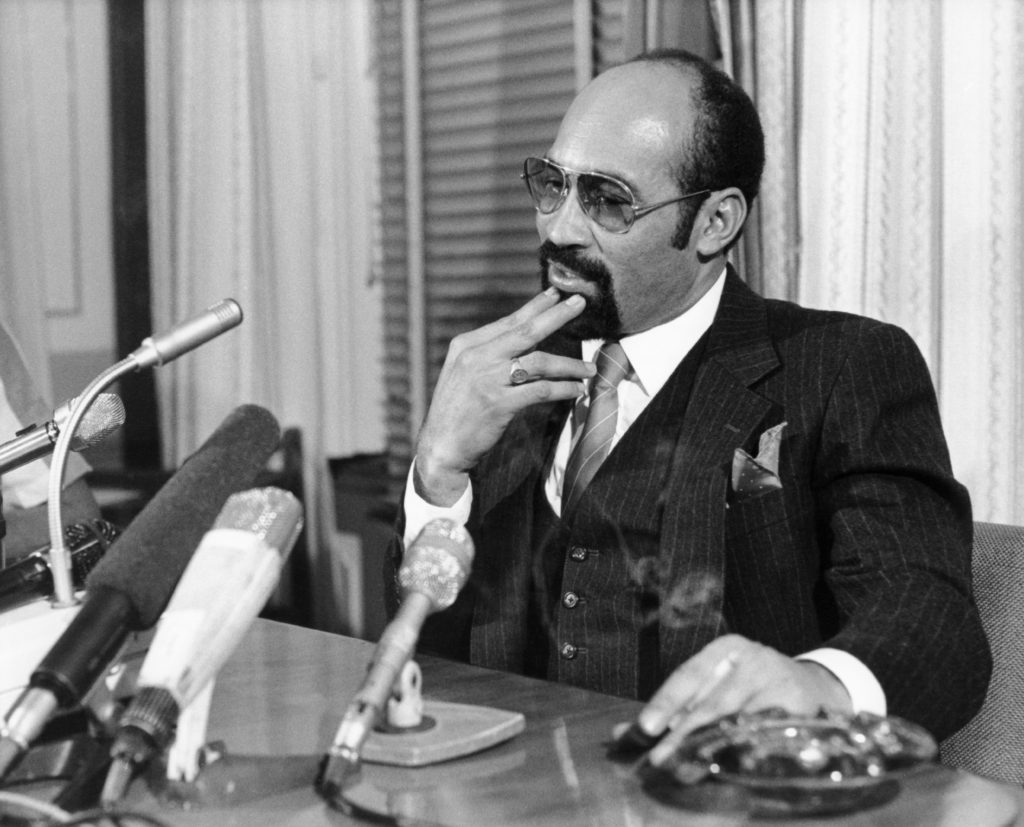US Justice Department said Wednesday it had seized 33 Iranian government-controlled media websites, as well as three of the Iraqi group Kataeb Hezbollah, which it said were hosted on US-owned domains in violation of sanctions.
Visitors to leading Iranian media sites like Press TV and Al-Alam, the country’s main English language and Arabic language broadcasters, as well as the Al-Masirah TV channel of Yemen’s Huthis, were met with single-page statements declaring the website “has been seized by the United States Government” accompanied by the seals of the Federal Bureau of Investigation and the US Commerce Department.
The 33 websites were held by the Iranian Islamic Radio and Television Union (IRTVU), itself controlled by the Islamic Revolutionary Guard Corps Quds Force (IRGC).
Both IRTVU and IRGC have been placed on the US sanctions blacklist, making it illegal for Americans, US companies, and foreign or non-American companies with US subsidiaries to have business with them or their subsidiaries.
Kataeb Hezbollah, the Iraqi group which owned three sites that were seized, is a hardline military faction with close ties to Tehran that Washington has formally designated a terror group.
Islamic Republic of Iran Broadcasting (IRIB), the immediate parent of Al-Alam, reported that other web domains, including Palestine-Al Youm, a Palestinian-directed broadcaster, and an Arabic-language religious and cultural channel were among those seized.
Bahrain’s LuaLua TV, a channel run by opposition groups with offices in London and Beirut, was also frozen by the United States, according to an AFP correspondent in the region.
IRIB accused the United States of repressing freedom of expression and joining forces with Israel and Saudi Arabia “to block pro-resistance media outlets exposing the crimes of US allies in the region.”
On the website of their political wing, the Huthi branded the action “American piracy and copyright confiscation.”
“The government of the United States of America is banning the Al-Masirah website without any justification or even prior notice,” they said.
A-Masirah quickly established a new website, using its name but swapping the .net domain for .com.
Meanwhile LuaLua and Al-Masirah continued to broadcast new programs, AFP journalists said.
– ‘Malign influence operations’ –
IRTVU was designated for sanctions last year for “brazen attempts to sow discord among the voting populace by spreading disinformation online and executing malign influence operations aimed at misleading U.S. voters,” the Justice Department said.
“IRTVU and others like it, disguised as news organizations or media outlets, targeted the United States with disinformation campaigns and malign influence operations,” the department said in a statement.
US officials meanwhile have tied Kataeb Hezbollah to rocket and other attacks on sites in Iraq where American soldiers and diplomats reside, and say that the groups is supported by Iran’s Revolutionary Guard Corps.
The Justice Department did not identify the US company or companies which owned the domains that hosted the websites, or explain how they had been able to host them contrary to sanctions.
The US action came as Washington seeks to restore the 2015 agreement between Tehran and six major countries to freeze its nuclear program in exchange for lifting sanctions.
In 2018 then-president Donald Trump ordered the United States to withdraw from the agreement, alleging that Iran was not adhering to its commitments, though independent nuclear inspectors said it was.
Upon taking office this year, President Joe Biden committed to rejoining the agreement and talks with Iran on what both sides would do to resume the pact have gone on for weeks.
EU negotiator Enrique Mora said on Sunday that those involved in the talks were “closer” to saving the Iran nuclear deal but that sticking points remain.
The US action also came just after Iranians chose ultraconservative cleric Ibrahim Raisi as president in an election the US State Department characterized as neither free nor fair.









